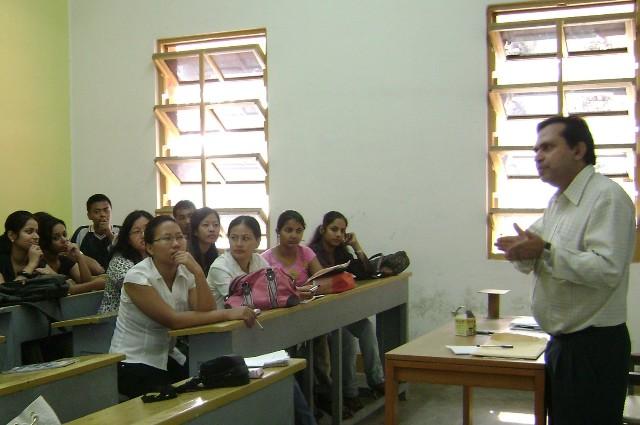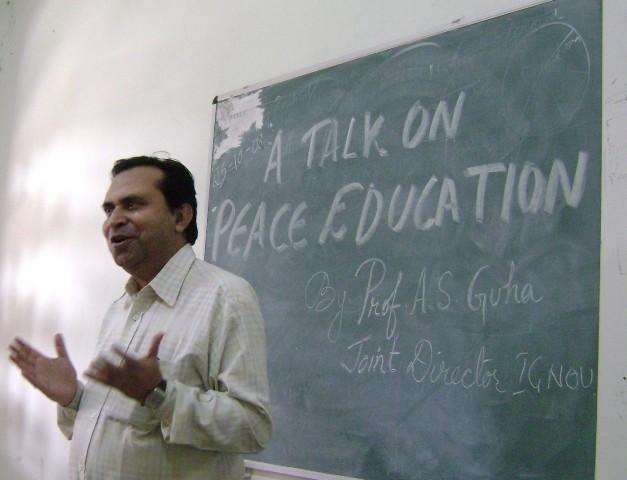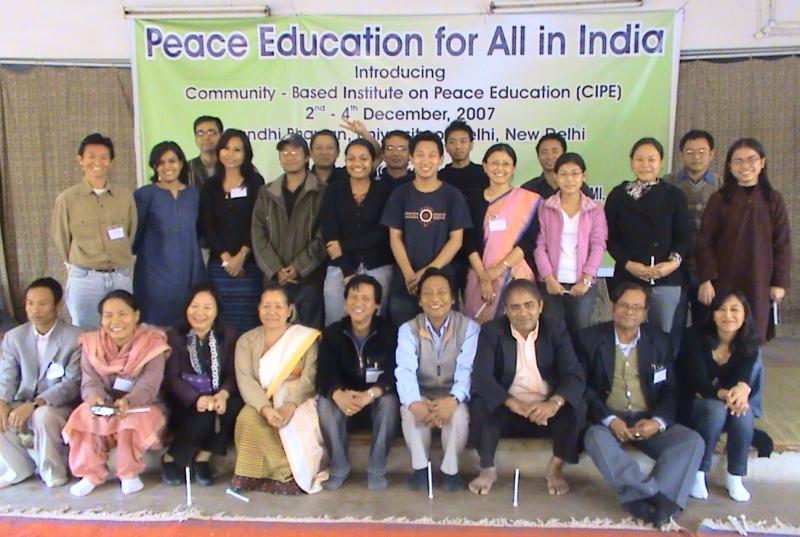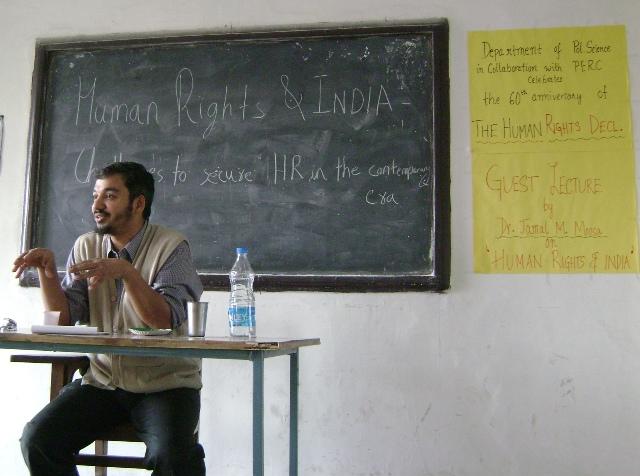| Posted: May 21 2010,05:00 |
If you wrote this report, you will find a button here that you may click
in order to make changes in the report. 
|
Postal address of organization/institution
|
C/o Mr Kh. Samuel Poumai
B-179, Ground Floor, Gandhi Vihar
Delhi – 110009, India.
|
E-mail address of organization/institution
|
percindia@gmail.com
|
Website address of organization/institution
|
none
|
Telephone of organization/institution
|
+ 91 - 9811216104 / + 91 – 9999428245
|
PRIORITIES: All of the organization's domains of culture of peace activity |
EDUCATION FOR PEACE
HUMAN RIGHTS
WOMEN'S EQUALITY
DEMOCRATIC PARTICIPATION
UNDERSTANDING, TOLERANCE AND SOLIDARITY
INTERNATIONAL PEACE AND SECURITY
|
TOP PRIORITY: The organization's most important culture of peace activity |
EDUCATION FOR PEACE
|
PARTNERSHIPS AND NETWORKS: What
partnerships and networks does your organization participate in, thus
strengthening the global movement for a culture of peace? |
The
PERC looks out for opportunities to participate or collaborate in
organising programme/seminar/workshops related to culture of peace in
and beyond Delhi. And thus some of the major programmes the group have
participated/facilitated and shared partnership with are the –
* Participated and Assisted in Organising the Jashn-e-Aman Festival on 21st Sept to 2nd oct 2009 in Delhi
* Participated on the International Youth Peace Fest 2009 in Chandigarh, India.
*
Participated at the Two day Seminar cum Workshop on exploring the
theme of “Women and Peace: Strategizing and Learning for Change in
India.” organised by Community –based institute on Peace Education,
India and International Institute on Peace Education, March 28-29,
2009, Bhubaneshwar
* Organised a talk on ‘The Struggle of
indigenous people and indigenous people in India’ July 17 2008, in
collaboration with the National Council of Educational Research and
Training (NCERT), New Delhi
* Organised 3 days workshop on
‘Peace Education for all in India: Introducing Community –based
Institute on Peace Education (CIPE)’ in collaboration with Gandhi
Bhawan and other Peace Groups, December 2-4 2007, Gandhi Bhavan- New
Delhi
* Organised a talk on ‘Peace Education and Human Rights’
in partnership with the Russian Centre of Science and Culture,
22nd August 2007
* Organised Seminar on ‘Tribal People and Peace’ in partnership with ICITP and LIFE, 29th March 2000
*
Participated in the Conference on ‘Status of Women: The Challenge to
the Social Service Sector’ organised by YMCA from 16 -17th March
2000
|
ACTIONS: What activities have
been undertaken by your organization to promote a culture of peace and
nonviolence during the ten years of the Decade? If you already made a
report in 2005, your information from 2005 will be included in the 2010
report.
|
The
Peace Education Resource Centre, India is a Peace Forum. It came into
being as a result of the effort of the concerned students from
University of Delhi endorsing “The Hague Agenda for Peace and Justice
in the 21st Century”.
HAP, DU was initially a voluntary
students’ body. Gradually many like-minded people from various fields
joined the body and have led to the formation of Peace Education
Resource Centre Delhi (PERC, Delhi) which is a more formal and
structured.
Today PERC, India comprises of more than 30 members
from different areas of interest, communities and faiths from various
parts of the country.
Members of the PERC, India commit
themselves to working together on the main objective of promoting and
building a culture of Peace through Peace Education.
We believe
that Peace Education is a participatory holistic process that includes
teaching for and about democracy and human rights, nonviolence, social
and economic justice, gender equality, environmental sustainability,
disarmament, traditional peace practices, international law and human
security.
PERC have been actively involved in many activities since its inception in 1998. Such as:
1. Workshop on Core Concepts in Peace Education
2. Screening of film “A force more powerful” and discussion
3. Talks on
- Gender and Peace
- Tribal People and Peace
- Indo-Pak Relations: A Dialogue or a Confrontation
- Civil Society and Peace
- Spirituality, Society and Peace
- Violence and the Environment
- Indigenous People: Existing Scenario
- Peace Education and Human Rights
- Indigenous People in India
- Peace Education: An absolute necessity with special reference `to Northeast India
- Challenges to Securing Human Rights in the Contemporary Era
4. Campus Cleans Campaign & Hepatitis B Vaccination program
5. A Cultural night on the theme “A Culture of Peace”




|
PROGRESS: Has your organization
seen progress toward a culture of peace and nonviolence in your domain
of action and in your constituency during the second half of the
Decade? |
It
is difficult to assess whether we have been successful in contributing
to a culture of Peace in Delhi. But we have been able to do some
activities in the university campus especially with the students. We
aimed in inculcating the idea of culture of peace with the students so
that as they moved out of the campus, they could carry that wherever
they go.
|
OBSTACLES: Has your organization faced any obstacles to implementing the culture of peace and nonviolence? If so, what were they?
|
Major
obstacle in the progress of the organisation is the financial
constraints. PERC is a voluntary group. All the activities are carried
out from the small contribution by the PERC members.
|
PLANS: What new engagements are
planned by your organization in the short, medium and long term to
promote a culture of peace and nonviolence? |
This year the organisation plans to:
* Organize a peace dialogue among the states of the Northeast (Aug-Sept)
* Organize a Peace dialogue between the Northeasterners and the Mainland people (Nov-Dec)
|
GLOBAL MOVEMENT: How do you think the culture of peace and nonviolence could be strengthened and supported at the world level??
|
The
world is made up of the different people. Every society or community is
a unit that made up the world. If we are looking at a peaceful world,
it is only possible when there is peaceful-coexistence between the two
neighbouring people/culture/countries.
|
| Back to top |
|






